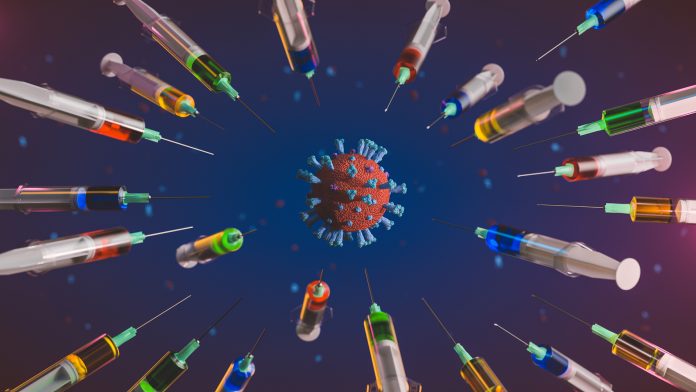
The World Health Organization (WHO) has stated that increasing vaccine development and access will be a crucial weapon in the fight against drug-resistant infections.
Antimicrobial resistance (AMR) is one of the greatest threats to human health and occurs when bacteria, viruses, fungi, or parasites develop resistance to antimicrobial drugs – such as antibiotics and antivirals – that are used to treat them. WHO believes that vaccine trials must be accelerated and existing vaccines made globally available to combat drug-resistant infections.
The global threat of AMR
A recent report in The Lancet revealed AMR was associated with 4.95 million deaths in 2019 and that 5.7 million deaths could be prevented each year in low- and middle-income countries if the right antibiotics were used.
Additionally, infections linked with ventilators and catheters are 13 times higher in these countries compared to the US, and healthcare-acquired infections (HAIs) among newborns are up to 20 times higher than in high-income countries.
The WHO reports argue that vaccines can be a potent tool against drug-resistant infections and can help to mitigate the implementation of antimicrobial medicines.
Hanan Balkhy, the WHO assistant director-general for antimicrobial resistance, commented: “Preventing infections using vaccination reduces the use of antibiotics, which is one of the main drivers of AMR. Yet, of the top six bacterial pathogens responsible for deaths due to AMR, only one, Pneumococcal disease (Streptococcus pneumoniae), has a vaccine.”
David Sack, professor of international health at Johns Hopkins Bloomberg School of Public Health, said: “When an effective vaccine prevents infection, it does not care if the infection was sensitive or resistant to antibiotics. It reduces the total incidence of the infection and thereby reduces the number of infections caused by resistant strains as well as sensitive ones.”
Vaccines versus drug-resistant infections
The WHO report highlights 61 vaccine candidates in different stages of human testing last year and 94 vaccine candidates in development that are not yet being tested in humans that need accelerated development. The report also urges fair, impartial and international access to existing vaccines, especially for people in resource-poor regions.
There are currently vaccines for what WHO categorises as diseases caused by four priority pathogens, which include pneumococcal disease, Haemophilus influenzae type b (Hib), tuberculosis (TB), and typhoid.
However, the TB vaccine – called the BCG jab – no longer provides complete protection from the disease, meaning more effective vaccines are urgently needed. The other three infections have effective vaccines, although they need to be widely distributed to reduce the use of antibiotics and prevent deaths.
Although this strategy could help mitigate drug-resistant infections, global health experts argue that broader strategies are needed to defeat AMR.
George M. Varghese, professor of infectious diseases at the Christian Medical College, said: “Although vaccines are one of the greatest discoveries in human history saving millions of lives, it is unlikely to be a key solution for the silent pandemic of AMR.
“Making the effective vaccines against influenza, COVID-19 and pneumococcal pneumonia available in an equitable and accessible manner will reduce unnecessary antibiotic usage to some extent and thereby reduce the problem of AMR to some degree.”
Reducing the use of antibiotics
Antibiotics are sometimes wrongly prescribed for viruses due to a lack of diagnostics. Due to this, WHO is calling for other measures to ensure appropriate antimicrobial use, such as better infection control practices, controlling antibiotic use in agriculture, developing new antimicrobials and diagnostics, and improving AMR surveillance.
Agnimita Giri Sarkar, a consultant paediatrician at the Institute of Child Health in Kolkata, said: “In developing countries, supply of over-the-counter antibiotics without prescription or with an old prescription, and self-medication with incorrect knowledge about antibiotics, are posing a great threat contributing to antimicrobial resistance.”
WHO is collaborating on a project called SECURE that is aiming to increase access to antibiotics where they are needed most, and ensure responsible use. Countries taking part in the initiative will gain access to novel antibiotics to treat drug-resistant infections in addition to existing medications not widely available.








